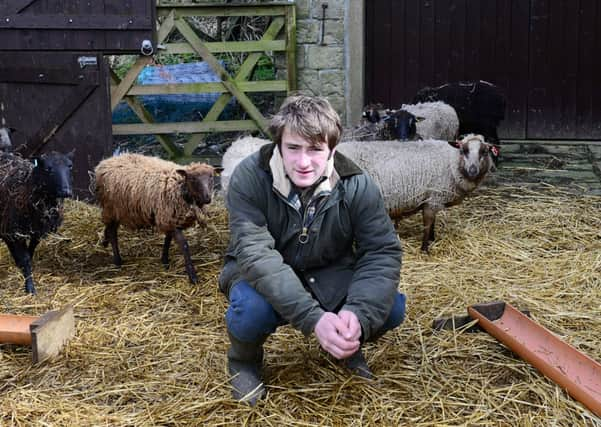How to become a farmer aged 20


He breeds Shetland sheep for their meat, which he sells directly to customers. He also sees their potential as a dam line for commercial fat lamb production and this year he will market their prized wool as yarn.
Sam is one of many talents who represent the bright future of agriculture, and is one of several faces Country Week will profile as it marks its tenth year in print.
Advertisement
Hide AdAdvertisement
Hide AdThe young businessman is also a dry stone waller, a sheep shearer and a relief milker of dairy cows. And last year he supplied geese to a local butcher for Christmas.
He started keeping sheep at 18 and is convinced about his future as a hill farmer. Shetland sheep are his focus, but his other skills mean he will be a full time farmer when he leaves college this summer.
Currently in his final year studying agriculture with land management at Askham Bryan College, York, he’s already seeking more land to expand his flock and breed from shearlings instead of hoggs.
He also plans to introduce some suckler cows because he loves working with cattle.
Advertisement
Hide AdAdvertisement
Hide AdA child of the Pennines, Sam grew up on a smallholding in Golcar near Huddersfield.
“Some of my earliest memories are mending walls here with my mother and my grandparents,” he says. “I’ve always wanted to be a farmer. I can’t remember wanting to do anything else.”
He was encouraged into a career in agriculture by his parents, both of whom are doctors, and his grandparents, who run a hill farm in nearby Slaithwaite. His grandfather Carsten Svensgaard was a pig farmer and farm consultant in his native Denmark, before he moved to Yorkshire.
Growing up, Sam worked on local sheep farms. Aged 15, he learned to milk and began developing his marketing skills.
Advertisement
Hide AdAdvertisement
Hide Ad“All the farmers have mentored me. I never had much confidence until recently.
“I did a lot of walling with other wallers but I’d never had the confidence to advertise. Now I’ve got walling jobs ahead of me which will take me into autumn.”
Sam has secured 20 acres of land which covers four sites. He also buys nine acres of standing grass for hay at £50 per acre per year.
“The spare hay covers contracting and make a modest profit. All my land is marginal. There are a lot of rushes to go round in the hay field, but a few bales of rushy hay can be handy for starting ring feeders in wet years.”
Advertisement
Hide AdAdvertisement
Hide AdWorking multiple sites is tough, especially as Sam’s only vehicle is a Morris Minor.
“I’ve bought a livestock trailer, but I can’t afford a Land Rover or a 4x4 to pull it. I have to rely on borrowing relatives’ vehicles.”
He has 52 breeding ewes and as his business develops he will use a terminal sire to produce commercial lambs and keep shearlings: “Lambs bred from shearlings are stronger and they mother on better, I find.
“The big advantage with a Shetland is that outside of Shetland they’re quite rare so there’s an opportunity on the rare breed market, but they’re still a commercial sheep.”
Advertisement
Hide AdAdvertisement
Hide AdAnother advantage is the marketability of Shetland wool. Sam is sending Shetland fleeces to Halifax Spinning Mill in Pollington for spinning and is advertising the yarn by wearing a hand-knitted sweater made from wool from his sheep - he already has advance orders.
He expects the meat business alone to turn a profit in 2015: “The first year I broke even due to set up costs. The second was bad luck. I had a stray dog through my sheep, it was chasing a deer.
“I also had problems with a tup. His group produced a respectable lambing rate but the lambs died due to a congenital disease.”
Sam is confident about his produce, and proud that the business is entirely his own. He has paid for everything with funds earned through walling and farm work.
Advertisement
Hide AdAdvertisement
Hide Ad“People want lean meat, and Shetland meat is very lean,” he says. “I don’t think the interest in local food will go away, there’s a market for anything from Yorkshire.
“Shetland wool is marketable, but Shetland wool produced in Yorkshire is unique. I expect a lot of interest.”